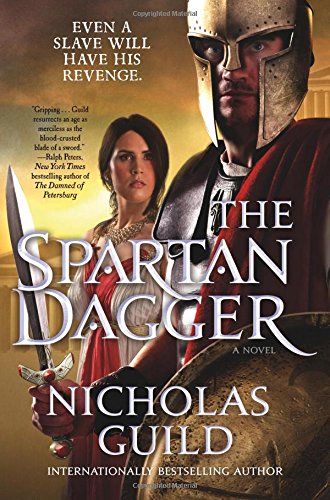The Spartan Dagger
Two brothers seek to claim their manhood by “wetting” their swords in an ancient Spartan rite of passage. They attack a traveling family, killing the mother and father. The couple’s son, Protos, evades the attack and manages to kill one of the Spartans. He keeps the dead man’s dagger and seeks revenge upon the other brother, Eurytus. Protos, whose name means “destined,” is a Helot, and his people have been oppressed by the Spartans for centuries. As Protos grows to manhood, all the while in a cat-and-mouse game with the Spartan brother he seeks to kill, he discovers that while avenging his parents’ murders, he can also help others who fight for liberation against Spartan rule.
Oddly, the first part of this novel loses its suspense as it goes along. There is never a shift in character dynamics; Protos always has the advantage, and Eurytus is always looking behind him in fear of Protos’s revenge. Protos’s superhuman abilities—to completely sneak up on warriors (trained since childhood), to dodge javelin throws, and to teach himself to throw swords and daggers with precision—all come across as almost unreal. It is the “will of the gods.” This appears to be a plot device used in Guild’s earlier novels, serving to explain Protos’ dynamic abilities. However, giving Protos a few character flaws would have made him more relatable to readers.
Guild expertly examines the price of vengeance as it consumes a person’s life. I was impressed by how the author brings the main conflict to a close. There are a lot of personal discoveries and examples of character growth in the last third of the book. The time period is well captured by Guild’s settings and characters. Overall, a satisfying read.










